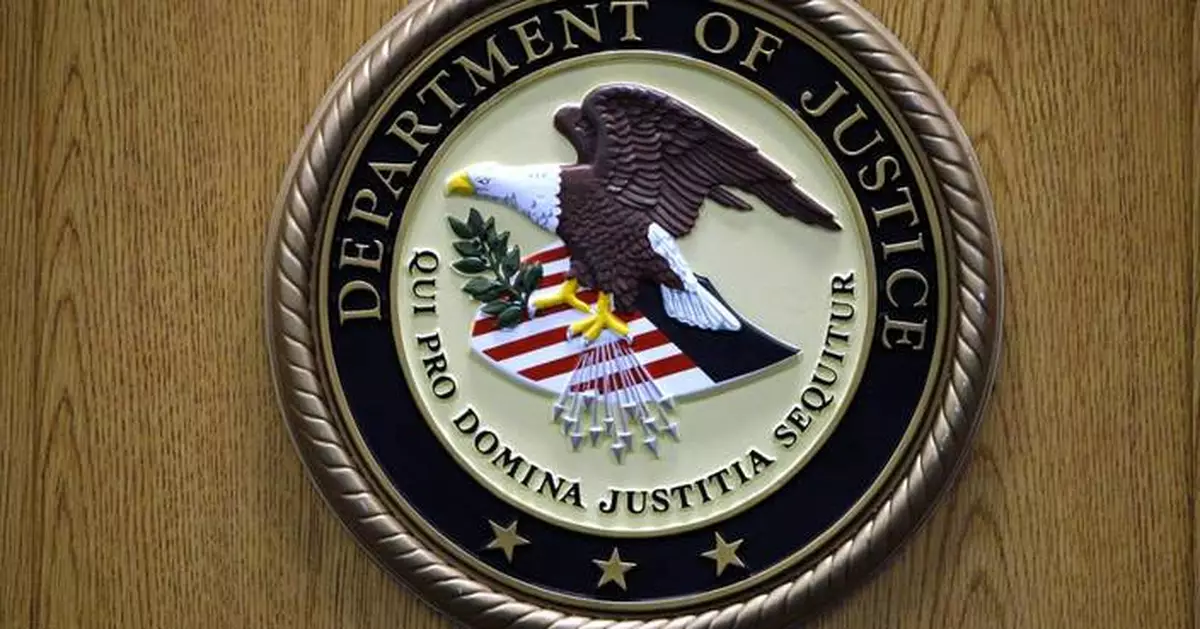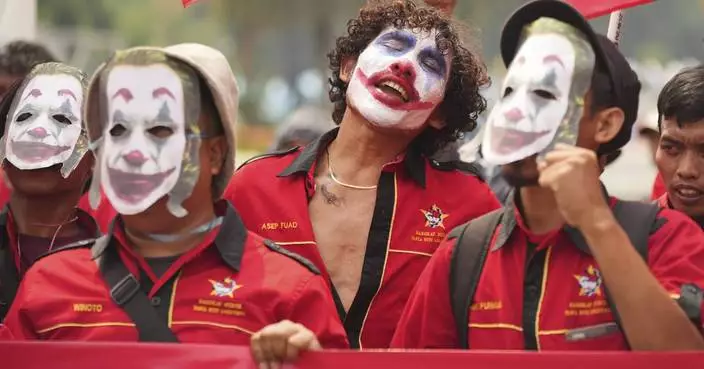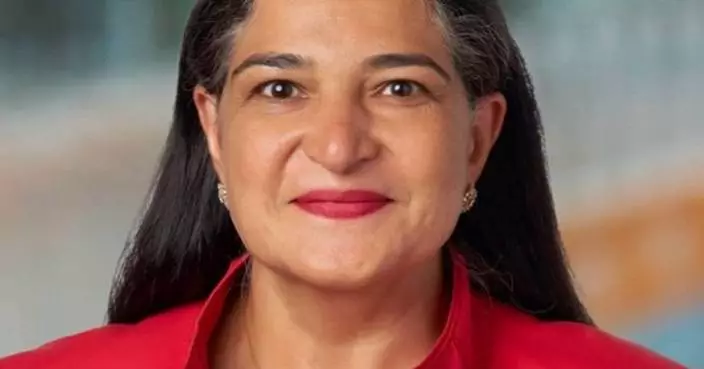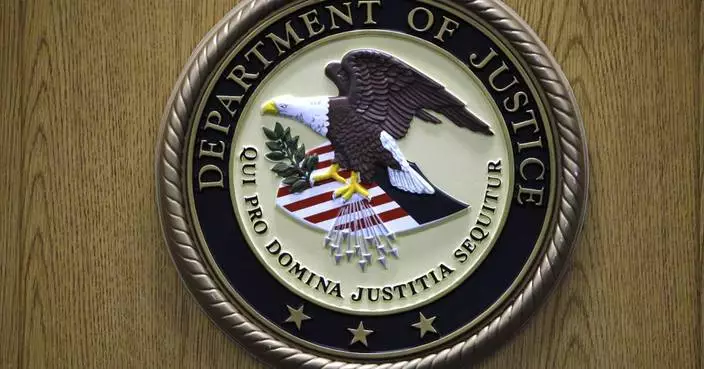NEW YORK (AP) — Three more federal prosecutors who had been involved in the now-dismissed corruption case against New York City Mayor Eric Adams resigned on Tuesday, saying they felt pressured into admitting wrongdoing or regret as a condition for being reinstated to their jobs.
“We will not confess wrongdoing when there was none,” Celia Cohen, Andrew Rohrbach and Derek Wikstrom wrote in a letter to Deputy Attorney General Todd Blanche.
The three assistant U.S. attorneys had been placed on leave after a number of prosecutors in New York and Washington refused to follow orders to end the case against Adams, a Democrat.
The letter was published by several news outlets. Its authenticity was confirmed to The Associated Press by a person who received the letter.
The resignations came the same day that Jay Clayton, former chairman of the U.S. Securities and Exchange Commission, was sworn in as the New York office’s new top prosecutor.
Adams was indicted last year, accused of taking illegal campaign contributions and travel perks from a Turkish official and others seeking to buy influence when he previously served as Brooklyn borough president.
In February, after President Donald Trump took office, the Justice Department ordered then-acting U.S. attorney for the Southern District of New York, Danielle Sassoon, to drop the charges against Adams — not due to the merits of the case, but rather so the mayor could assist in the Trump administration ’s immigration agenda.
Sassoon opted to resign instead, as did several other career prosecutors who objected to the criminal case being dismissed for political reasons. The case was eventually dismissed in April.
Cohen, Rohrbach and Wikstrom wrote in their resignation letter that it had become clear to them that one of the “preconditions” Blanche placed on them returning to work was to “express regret and admit some wrongdoing by the Office in connection with the refusal to move to dismiss the case.”
The new leaders of the Justice Department, they wrote, had “decided that obedience supersedes all else, requiring us to abdicate our legal and ethical obligations in favor of directions from Washington. That is wrong.”
Blanche said in a statement that there was nothing illegal or unethical about “dismissing the flawed prosecution against Mayor Adams.”
“Any suggestion to the contrary by anybody, especially former federal prosecutors, is wrong and disingenuous,” he wrote.
Emil Bove, then the acting deputy attorney general, had argued previously that Adams was being prosecuted because he had criticized former President Joe Biden’s immigration policies.
In dismissing the case, Judge Dale E. Ho noted that the record showed the prosecutors who worked on the case had followed all guidelines.
“There is no evidence — zero — that they had any improper motives,” Ho wrote in his ruling.
Associated Press writer Alanna Durkin Richer contributed to this report from Washington.

FILE - A Department of Justice logo is shown on a podium during a news conference, Sept. 30, 2010, in Philadelphia. (AP Photo/Matt Slocum, file)
STARKE, Fla. (AP) — An Army combat veteran whose Gulf War experience triggered severe mental problems was scheduled to be executed Thursday evening in Florida for the shotgun killings of his girlfriend and her three young children in 1998.
Barring a late reprieve, Jeffrey Hutchinson is set to receive a lethal injection starting at 6 p.m. Thursday at Florida State Prison near Starke. The execution, if carried out, will be the fourth in Florida this year under death warrants signed by Gov. Ron DeSantis, with a fifth execution planned for May 15.
Hutchinson awoke at 4:30 a.m. Thursday, prison officials said.
“He has remained compliant,” said Ted Veerman, spokesman for the Florida Department of Corrections.
Hutchinson had three visitors Thursday, including his sister and a spiritual adviser. His last meal was salmon, mahi-mahi, asparagus, baked potato and ice tea, Veerman said.
“He’s been calm and in good spirits,” Veerman said.
Hutchinson, 62, has long claimed he is innocent and that two unknown assailants perpetrated the killings as part of a U.S. government conspiracy aimed at silencing him over his activism on claims of Gulf War illnesses and other issues affecting veterans. Hutchinson served eight years in the Army, part of it as an elite Ranger.
Court records, however, show that on the night of the murders in Crestview, Florida, Hutchinson had argued with his girlfriend, 32-year-old Renee Flaherty, then packed his clothes and guns into a truck. Hutchinson went to a bar and drank some beer, telling staff there that Flaherty was angry with him before leaving abruptly.
A short time later, a male caller told a 911 operator “I just shot my family” from the house Hutchinson and Flaherty shared with the three children: 9-year-old Geoffrey, 7-year-old Amanda, and 4-year-old Logan. All were killed with a 12-gauge shotgun that was found on a kitchen counter. Hutchinson was located by police in the garage with a phone still connected to the 911 center and gunshot residue on his hands.
At his 2001 trial, Hutchinson based his defense on a claim that two unknown men came to the house, killing Flaherty and the children after he struggled with them. A jury found Hutchinson guilty of four counts of first-degree murder and he was sentenced to life in prison for Flaherty's killing and three death sentences for the children.
Since then, Hutchinson has undertaken numerous unsuccessful appeals, many focused on mental health problems linked to his Army service. In late April, his lawyers sought to delay his execution date by claiming Hutchinson is insane and therefore cannot be put to death.
Bradford County Circuit Judge James Colaw rejected that argument.
“This Court finds that Jeffrey Hutchinson does not have any current mental illness,” Colaw said in his April 27 order. “This Court finds that Mr. Hutchinson's purported delusion is demonstrably false. Jeffrey Hutchinson does not lack the mental capacity to understand the reason for the pending execution.”
In their court filings, Hutchinson's lawyers said he suffers from Gulf War Illness — a series of health problems stemming from the 1990-1991 war in Iraq — as well as post-traumatic stress disorder and paranoia related to his claim that he was targeted by government surveillance.
One of his lawyers, Chelsea Shirley, said Hutchinson has “a decades-long delusion that he is being executed to silence his efforts to expose government secrets. Two experts have concluded that he is not competent for execution. Based on these facts, we believe the court was wrong to find Mr. Hutchinson competent to be executed, but we are not surprised.”
Florida’s lethal injection protocol uses a sedative, a paralytic and a drug that stops the heart, according to the state Department of Corrections.
So far this year, 14 people have been executed in the U.S., including three in Florida, with Hutchinson to become the fourth. A fifth Florida execution is scheduled May 15 for Glen Rogers, who was convicted of killing a woman at a motel in 1997. Rogers was also convicted of another woman's murder in California and is believed by investigators to have killed others around the country.
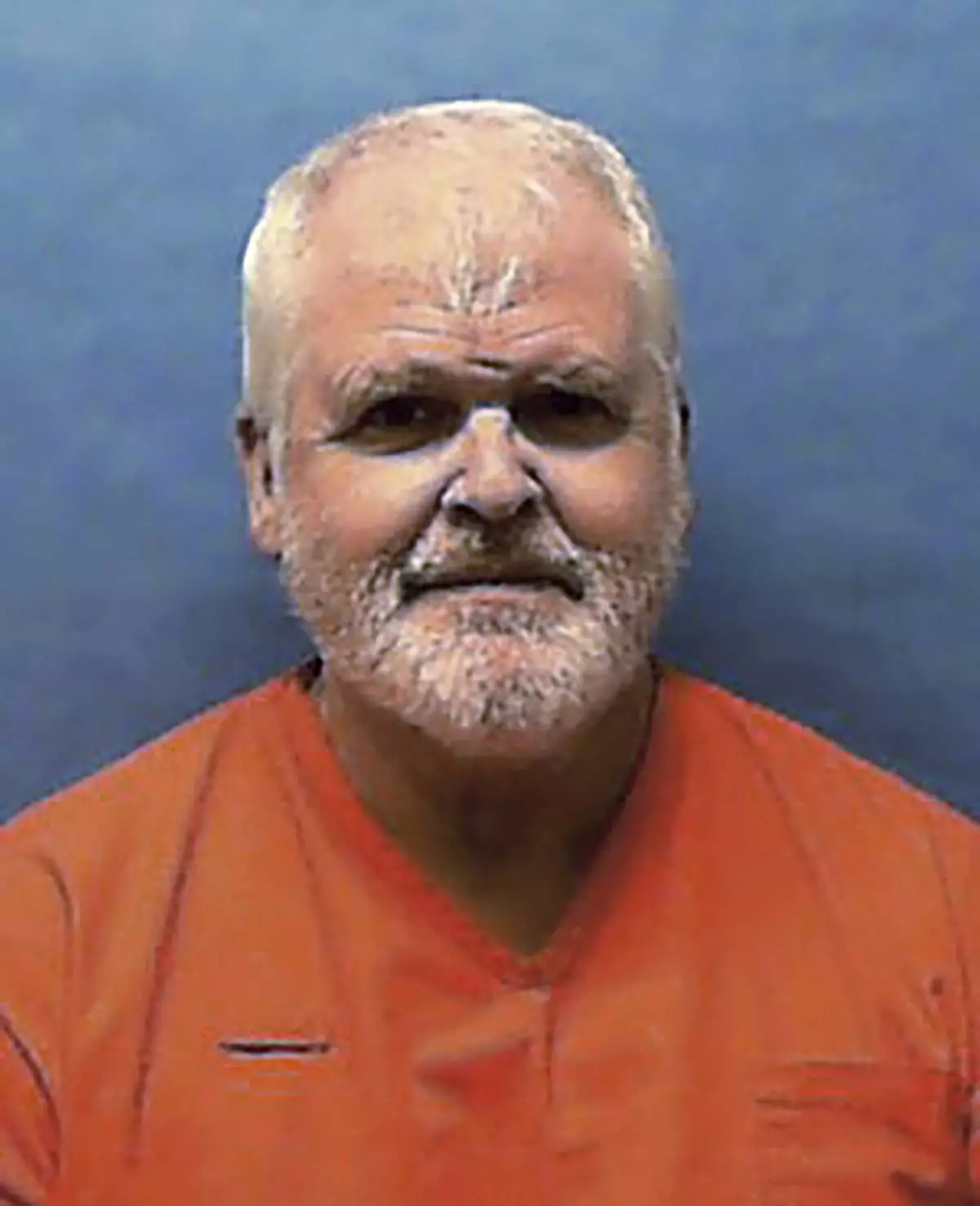
This image provided by the Florida Department of Corrections shows Jeffrey Hutchinson. (Florida Department of Corrections via AP)



